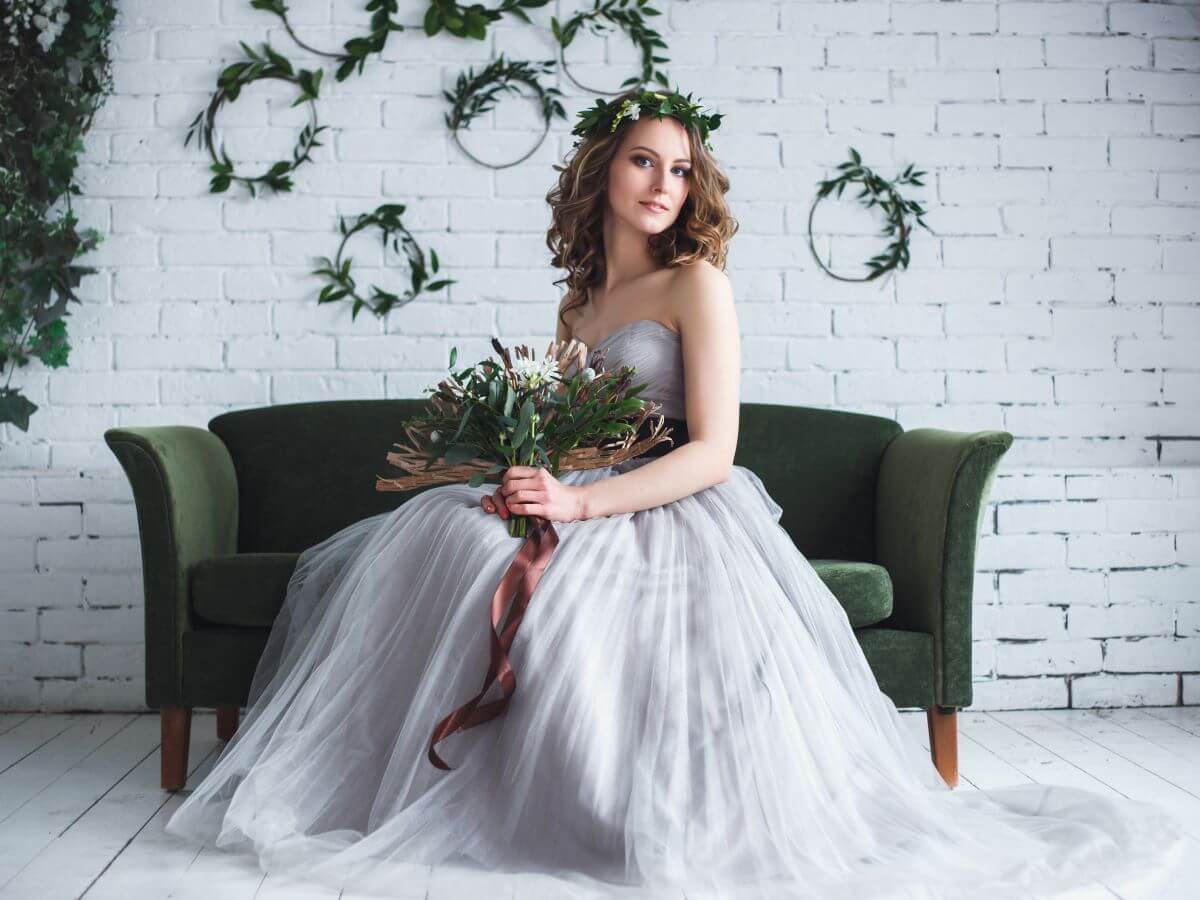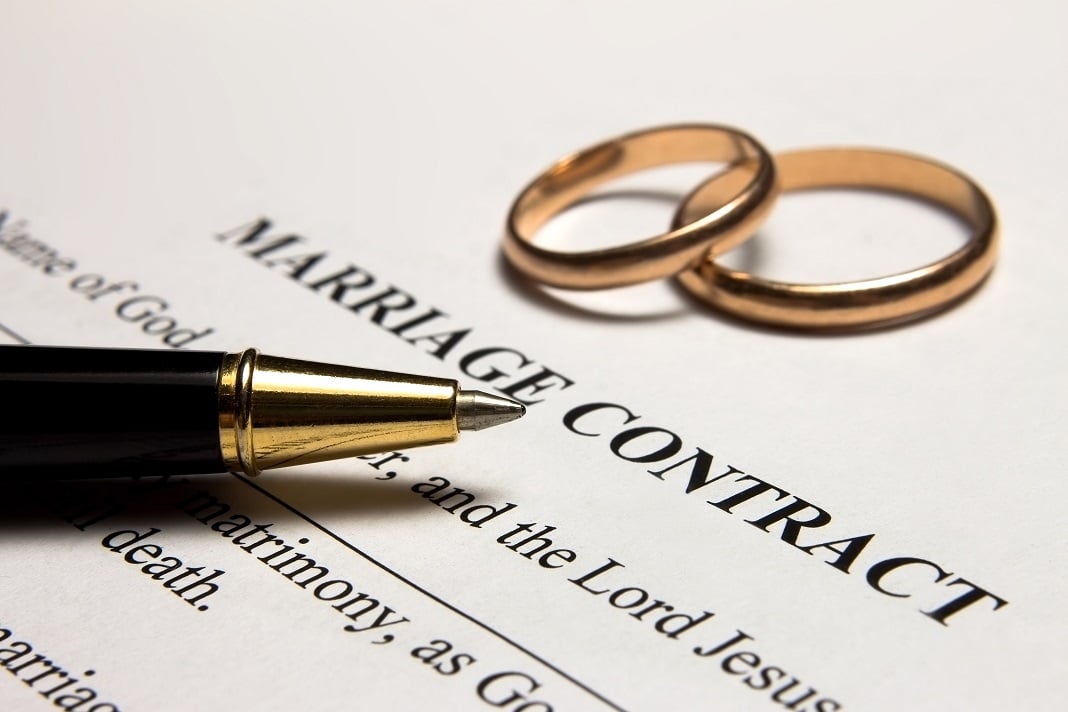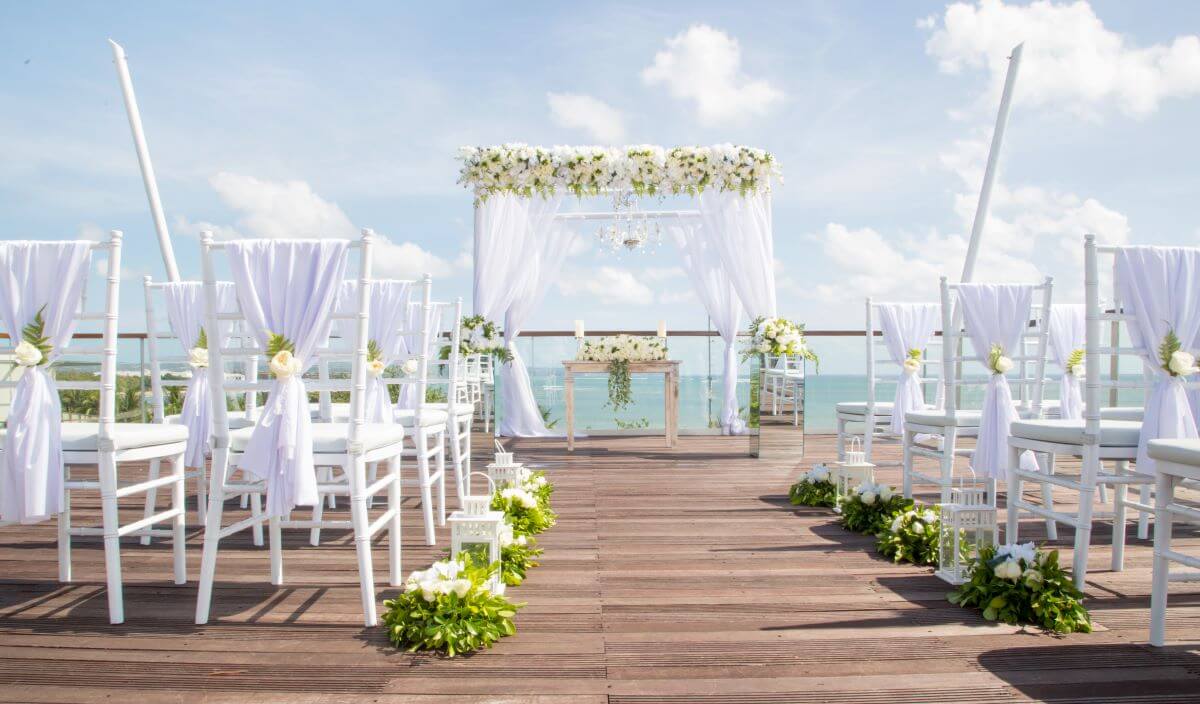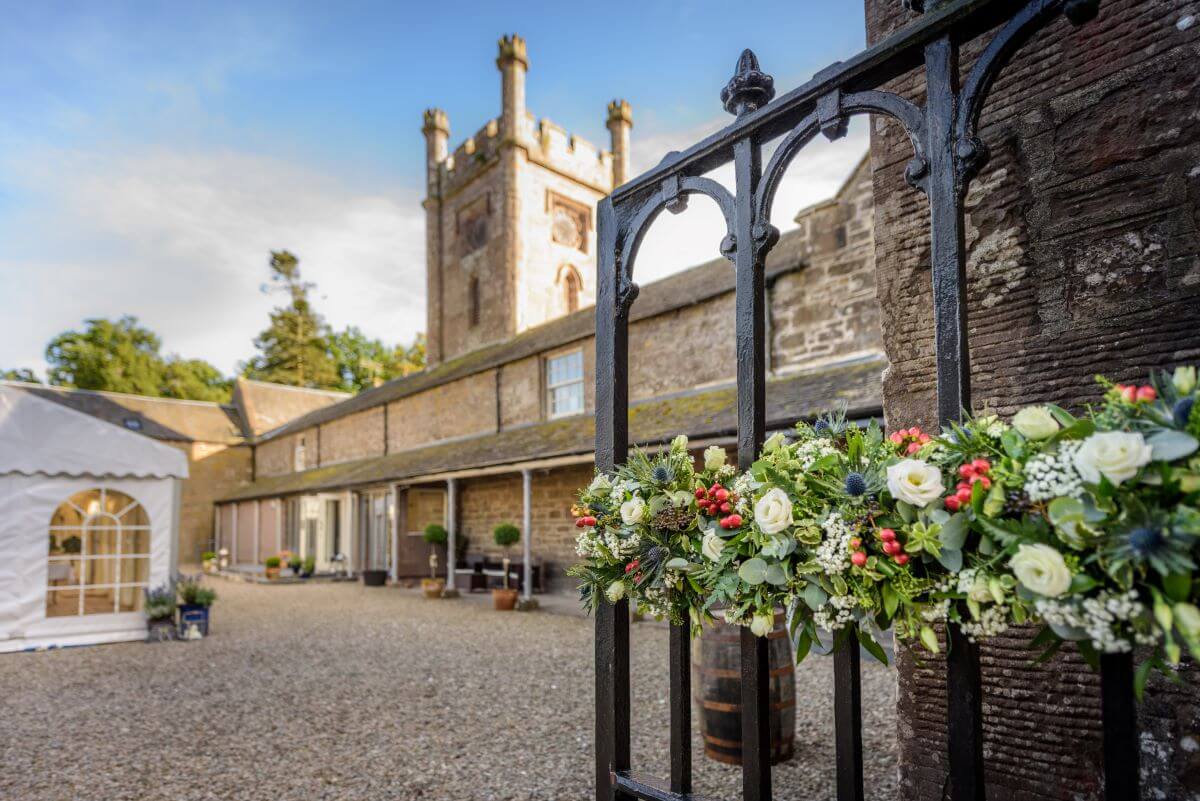Gone are the days when sustainability and eco-friendliness were seen as secondary to style and glamour. The latest trends in wedding fashion showcase both stunning designs and a commitment to protecting the environment. In this blog post, we’ll explore eco-friendly and ethically-made wedding gown fabrics that are both dazzling and sustainable. With various innovative materials and production techniques, these dresses ensure you can look fabulous while staying in harmony with the planet.
Eco-friendly Embellishments
Your wedding look is not complete without accessories. Opt for ethically-sourced jewellery, shoes, and veils to elevate your outfit while keeping sustainability in mind. Look for fair-trade diamonds and gemstones, vegan leather footwear, and recycled or up-cycled jewellery to stay aligned with your eco-friendly wedding dress choice.
To complement your sustainable wedding ensemble, you can also consider incorporating eco-friendly invitations as part of your wedding theme. Opt for formal wedding invitations made from recycled or sustainably-sourced paper, or consider digital invitations to further reduce your ecological footprint.
Peace Silk and Cotton
Traditional silk production methods involve boiling silkworms while they are still inside their cocoons, resulting in their death. Peace silk, also known as Ahimsa silk or cruelty-free silk, offers a humane alternative. The process involves collecting the silk only after the silkworm has turned into a moth and exited its cocoon naturally. While the threading process can be more complex, the final result is soft and lustrous material that drapes beautifully, ideal for a wedding dress with both grace and conscience.
Organic cotton is another popular choice for eco-friendly wedding dress fabrics. It is grown without the use of toxic or persistent pesticides and fertilizers, making it better for the environment and the health of farm workers. Brands have started to create timeless silhouettes using this fabric, whether you’re looking for a classic A-line or a more daring mermaid-style dress. Organic cotton also comes in various weave patterns, such as delicate lace or plush velvet for a luxurious feel.
Recycled or Rented
Wedding dresses made from recycled materials serve as a symbol of beautiful resourcefulness and environmental responsibility. Designers are turning plastic waste and other discarded materials into textiles suitable for creating refined wedding gowns. For instance, fabrics made from regenerated nylon found in fishing nets or from recycled polyester and water bottles can be transformed into stylish, eco-friendly wedding dresses. A growing number of designers are also incorporating vintage or pre-loved wedding dress materials into new gowns, giving new life to old fabrics.
Choosing to rent a wedding dress or wear a vintage gown are fantastic eco-friendly alternatives. Renting a dress allows it to be worn and appreciated by multiple brides, reducing waste and single-use garments. Vintage gowns carry a timeless beauty and uniqueness, embodying the style of an earlier era. By donning a previously worn or vintage dress, you contribute to the movement of sustainable fashion and reduce the demand for new wedding gowns.
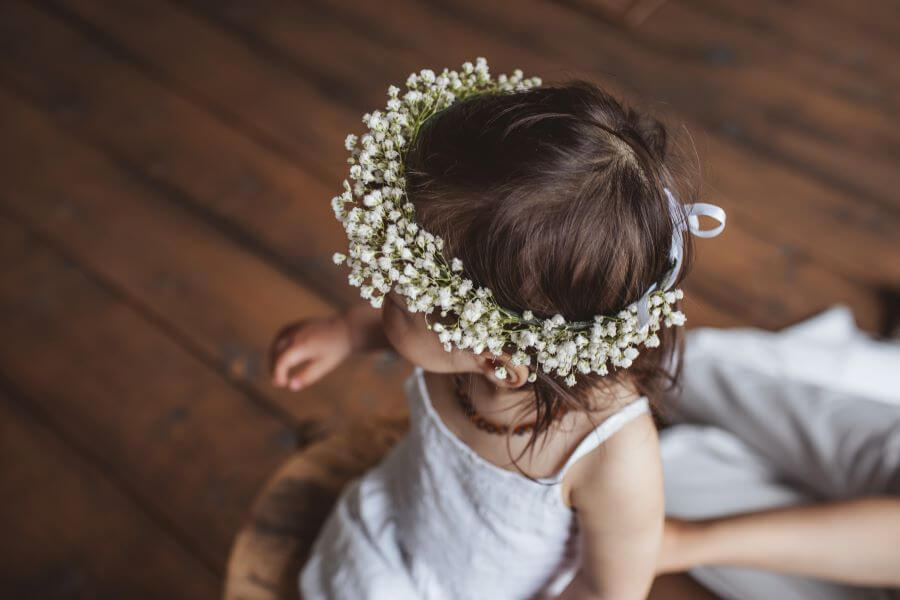
Indigenous Textiles and Linens
Embracing traditional fabrics and working with local artisans can add a meaningful touch to your sustainable gown. Indigenous textiles from various cultures around the world boast unique techniques, patterns, and colours that are often eco-friendly and utilize locally-sourced materials. Collaborating with local artisans can also empower communities, preserve traditional art forms, and minimize the carbon footprint associated with shipping materials across the globe.
If you envision a rustic and nature-inspired wedding theme, linen and hemp fabrics may be the perfect choice for your gown. These fabrics offer a unique, breathable, and organic texture. Consider designers that create elegant bohemian styles with these sustainable materials. Hemp, in particular, requires less water and grows faster than cotton, making it an environmentally attractive option. Linen, made from flax plant fibres, is known for its durability and elegance.
Ethical Production
Beyond the choice of fabric, ethical production is key to promoting sustainability in wedding fashion. Seek designers who prioritize fair labour practices, fair wages, and a healthy working environment for their employees. Additionally, look for brands that offer made-to-order options and customization, as this process minimizes waste and ensures that your gown is tailored to your preferences.
Slow fashion emphasizes quality over quantity. It encourages more thoughtful purchases, focusing on longevity, craftsmanship, and style. By adopting a slow fashion mindset for your wedding, you’ll invest in a gown that’s custom-designed and handcrafted, paying attention to each detail. This empathic approach supports not only the artisans but the environment as well, and transforms your wedding dress experience into a mindful and unique event.
Conclusion
Choosing an eco-friendly wedding dress doesn’t mean sacrificing style and elegance. Sustainable fabrics such as peace silk, organic cotton, recycled materials, and indigenous textiles serve as stunning, responsible options for your big day. By embracing these materials and prioritizing ethical production practices, you can walk down the aisle knowing that your dress is a dazzling reflection of your commitment to a better future for our planet.
